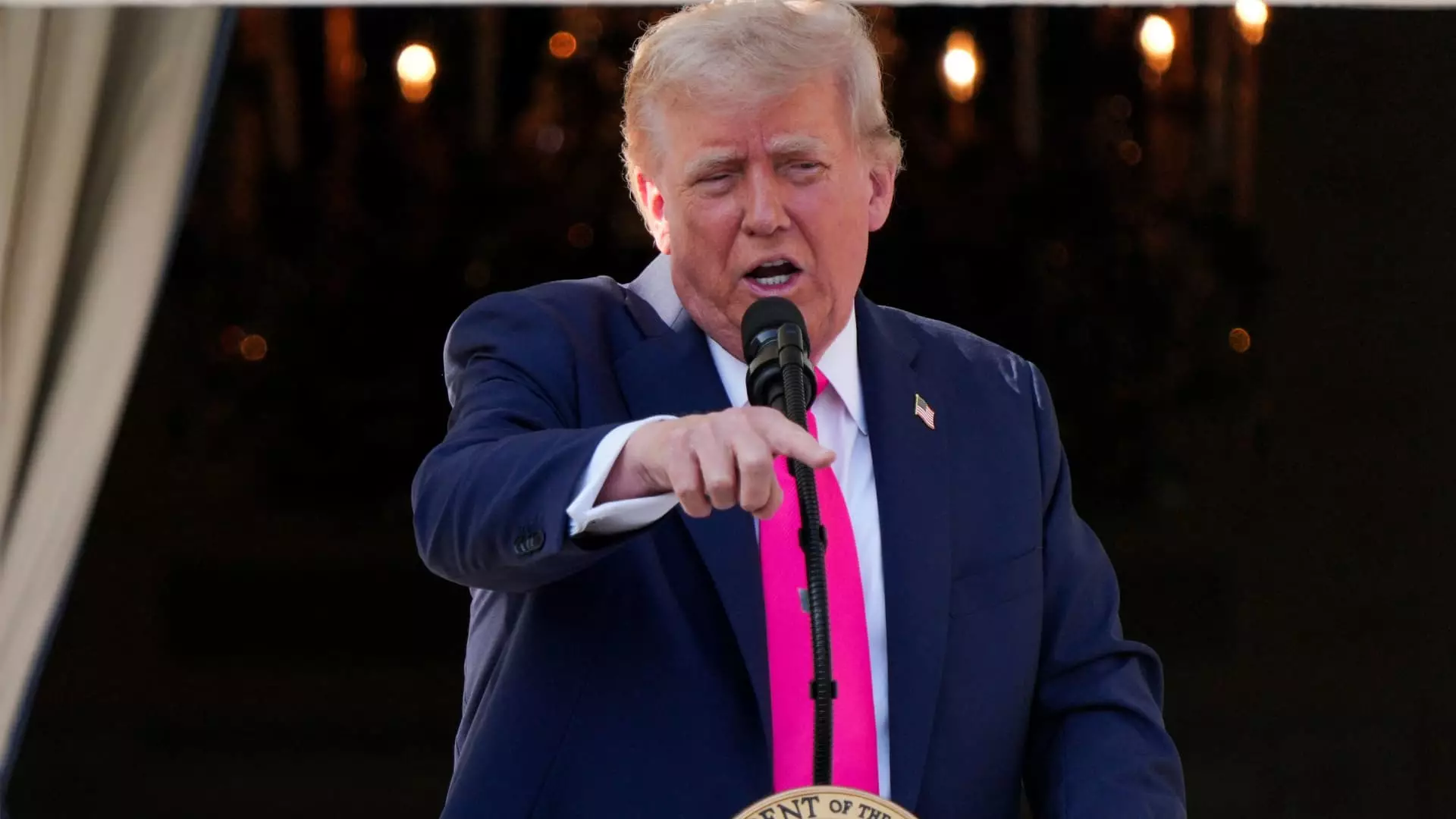The recent aggressive stance by the Trump administration on tariffs highlights a troubling disregard for the interconnectedness of today’s global economy. While national interests are valid, the strategy of unilaterally imposing swift and substantial tariffs under the guise of safeguarding domestic industries threatens to unravel years of economic cooperation. The decision to send “take it or leave it” tariffs to specific countries underscores a reckless approach rooted more in brinkmanship than in pragmatic diplomacy. These tactics undermine the very foundations of trust that are essential for sustainable international trade, risking retaliatory measures and escalating economic conflicts that no nation can afford in an era of complex supply chains and shared economic vulnerabilities.
Short-Term Gains versus Long-Term Consequences
It’s tempting to view tariffs as a tool to protect critical industries or address perceived unfair trading practices. However, the Trump administration’s approach appears driven more by political bravado than by strategic foresight. Imposing tariffs ranging up to 70% without a clear pathway for negotiations signals a zero-sum mindset—one that assumes adversaries will capitulate under pressure, ignoring the reality that global markets are deeply interconnected. Historically, trade disputes have stretched on for years—decades, even—culminating in durable agreements built through dialogue and compromise. The current chaos risks sacrificing long-term economic stability for short-lived political victories, leaving global markets more volatile and uncertain.
Neglect of Diplomatic Nuance and Multilateral Cooperation
What’s particularly disconcerting is how the administration dismisses diplomacy as a secondary concern. Instead of working toward mutually beneficial agreements, it opts to wield tariffs as geopolitical weapons. This shortsightedness ignores the importance of multilateral institutions and long-standing alliances that foster stability and peace. The failure to negotiate with key partners like the EU and India reflects a dismissive attitude that disrespects these relationships and diminishes America’s influence. It engenders a climate of suspicion and retaliation—precisely what center-wing liberalism seeks to mitigate through pragmatic engagement and cooperative solutions rather than confrontational tactics.
The Economic Fallout and Rising Risks
Unpredictable tariff hikes threaten to destabilize markets and hurt consumers. Higher costs for imported goods can lead to inflation, impacting the everyday lives of citizens and small businesses already strained by global economic shifts. Moreover, such policies threaten to ignite a trade war, which would ripple through supply chains, hurt exports, and destabilize industries reliant on international markets. It’s a reckless gamble that ignores the costs borne by the most vulnerable—workers, farmers, and consumers—who will bear the brunt of these protectionist measures. In a time when cooperation and stability should be prioritized, these tariffs serve only to deepen economic divides and fuel global instability.
The Need for Rational and Responsible Policy
Responsible leadership requires balancing assertiveness with diplomacy, understanding that lasting economic solutions are rooted in dialogue, not unilateral coercion. This approach recognizes that mutually negotiated trade agreements—though often slow and painstaking—are the pillars of sustainable economic growth. Abandoning multilateral frameworks and resorting to aggressive tariff threats is short-sighted and damaging. Instead, policymakers should focus on reforming trade practices collaboratively, fostering innovation, and addressing legitimate concerns through constructive engagement. Only through rational diplomacy can nations forge resilient economic alliances that withstand geopolitical tensions and global crises.
The reckless pursuit of tariffs as a quick fix exemplifies a dangerous misunderstanding of global economic interdependence. It exemplifies a tendency to sacrifice long-term stability for immediate political gain, risking an escalation that could leave America, and the world, worse off. The path forward must prioritize responsible diplomacy, multilateral cooperation, and careful negotiation—values that uphold the principles of center-wing liberalism and safeguard the prosperity shared across nations.


Leave a Reply